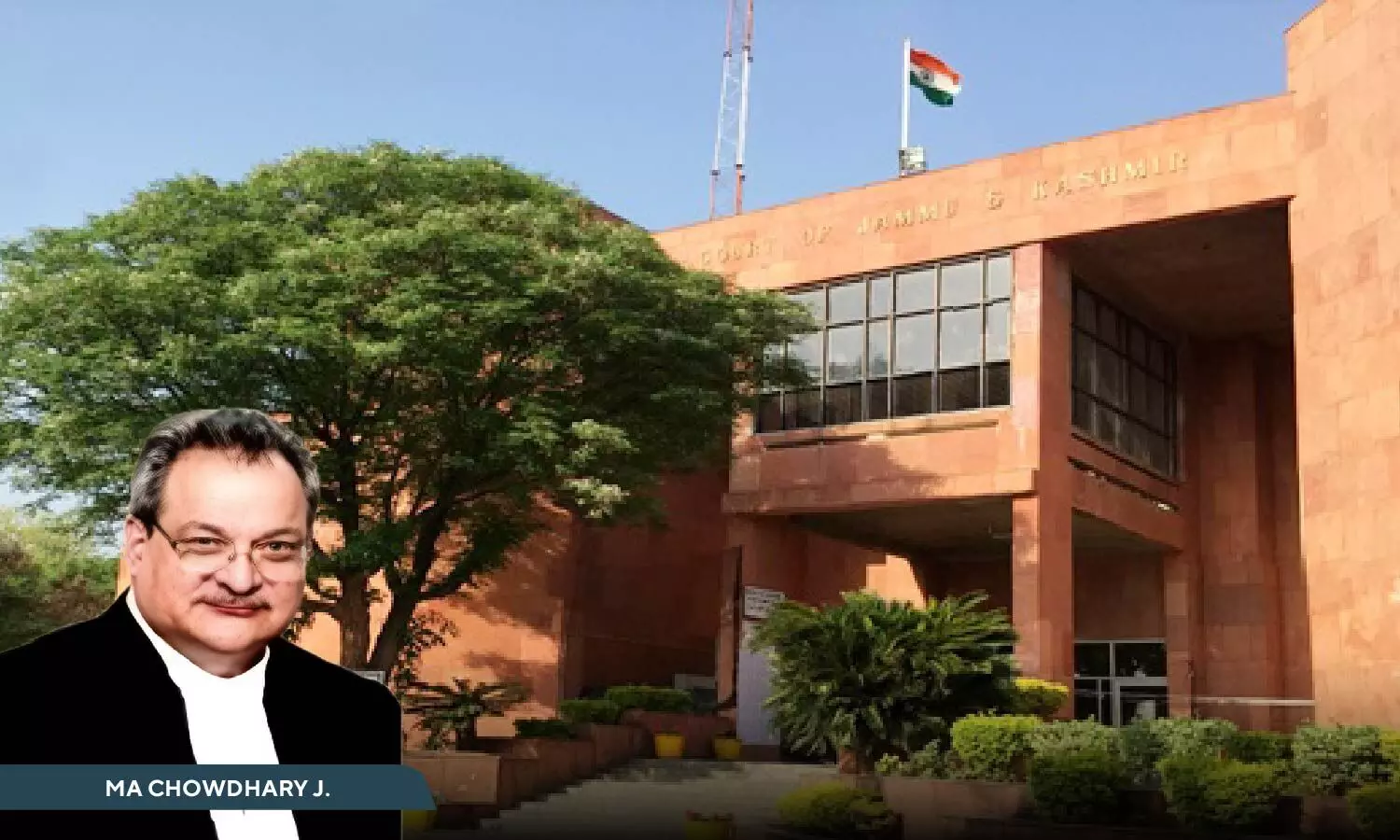
Justice M.A. Chowdhary, Jammu & Kashmir and Ladakh High Court
Limitation Under CrPC Does Not Apply To Applications Under DV Act Except Penal Proceedings: J&K & Ladakh High Court
 |
|The High Court has held that the period of limitation prescribed under the Code of Criminal Procedure applies only to penal proceedings under Section 31 of the Domestic Violence Act and not to applications filed under Sections 12 or 23.
The High Court of Jammu & Kashmir and Ladakh has ruled that the limitation provisions under the Code of Criminal Procedure (CrPC) apply only to penal proceedings under the Protection of Women from Domestic Violence Act, 2005 (DV Act), and that the applications filed under Sections 12 or 23 of the DV Act, seeking other reliefs, are not barred by limitation.
The Court was hearing a petition filed under Section 482 of the Code of Criminal Procedure seeking the quashing of proceedings on the ground that the complaint was barred by limitation.
Justice M.A. Chowdhary, while rejecting the petition, observed that “the bar of the period of limitation will be applicable only to the penal proceedings under Section 31 of the Act seeking punishment for the breach of the protection order or an interim protection order… However, there cannot be any bar to maintaining an application under other provisions, including Sections 12 and 23 of the DV Act.”
Senior Advocate C.M. Koul appeared for the petitioner. Advocate Ajay Bakshi represented the respondent.
Background
The matter arose from a petition filed under Section 482 CrPC seeking the quashing of a complaint in the Family Court under Section 12 of the DV Act, along with an application under Section 23, on the ground that the complaint was time-barred.
The petitioner argued that since the alleged acts of domestic violence occurred in July 2019, the complaint filed in February 2022 was barred by the one-year limitation under Section 468 CrPC.
The respondent had filed a complaint under Section 12 of the DV Act, along with an application under Section 23, alleging domestic violence, dowry demands, and forcible eviction from her matrimonial residence. She also filed a petition under Section 488 CrPC for maintenance, which was pending before the Family Court.
The petitioner challenged the maintainability of the complaint, arguing that the alleged incidents occurred in July 2019 and, since the complaint was filed in February 2022, it was barred by limitation under Section 468 CrPC.
The respondent, on the other hand, contended that limitation under Section 468 CrPC does not apply to applications under Section 12 of the DV Act and sought dismissal of the plea.
Court’s Observations
The Court held that proceedings under Sections 12 and 23 of the DV Act are predominantly civil in nature, while Section 31 deals with penal consequences for breach of protection orders. Thus, limitation under Section 468 CrPC applies only to penal actions.
Citing the Judgment of the Apex Court in Kamatchi v. Lakshmi Narayanan (2021), the Court reiterated that “Limitation under Section 468 CrPC only applies to actual offences, i.e., breaches of protection orders under Section 31. Applications under Section 12 are not akin to criminal complaints, and procedural safeguards or limitation rules applicable to criminal proceedings do not apply at that stage.”
The Court further clarified that an application under Section 12 of the DV Act cannot be equated with a criminal complaint under Section 200 CrPC, as the procedure prescribed for taking cognisance under the Code does not apply to such proceedings.
Justice Chowdhary observed that the DV Act provides a distinct framework intended to ensure effective protection to aggrieved persons, and therefore, the bar of limitation cannot be invoked to defeat the remedies available under its provisions.
The Court also referred to Shaurabh Kumar Tripathi v. Vidhi Rawal, wherein the Supreme Court held that High Courts may exercise powers under Section 482 CrPC in matters arising from the DV Act, but must do so cautiously and sparingly.
Conclusion
The High Court concluded that limitation under Section 468 CrPC has no application to complaints or applications filed under Sections 12 or 23 of the DV Act unless they involve penal proceedings under Section 31. Since the respondent’s case did not relate to breach of any protection order, the Court dismissed the petition.
“The petition is found to be misconceived, devoid of any merit and substance and is liable to be dismissed”, the Court remarked.
Cause Title: Tilak Raj v. Darshana Devi
Appearances:
Petitioner: C.M. Koul, Senior Advocate, with A.R. Bhat, Advocate
Respondent: Ajay Bakshi, Advocate
Click here to read/download Judgement